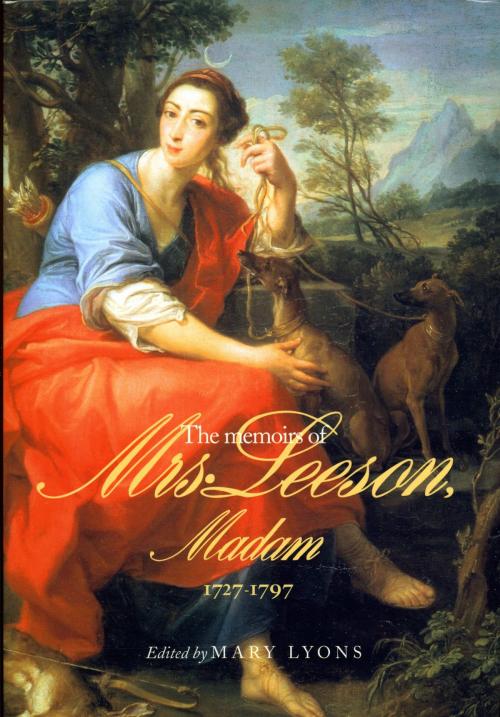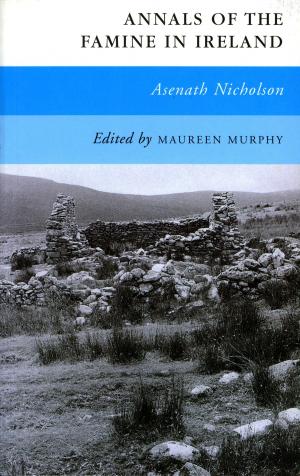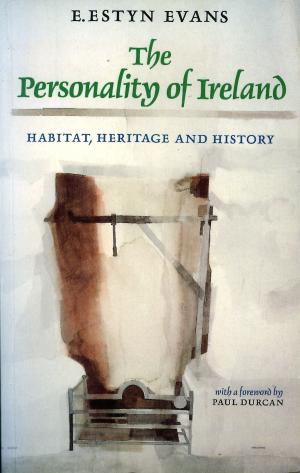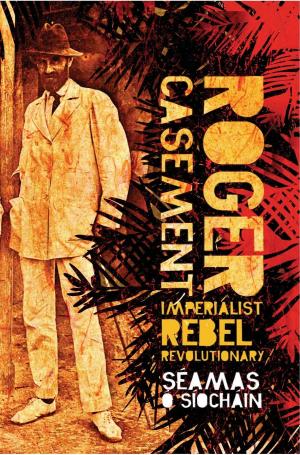The Memoirs of Mrs Leeson, Madam
Biography & Memoir, Historical, Nonfiction, Social & Cultural Studies, Social Science| Author: | ISBN: | 9781843514428 | |
| Publisher: | The Lilliput Press | Publication: | January 1, 1995 |
| Imprint: | The Lilliput Press | Language: | English |
| Author: | |
| ISBN: | 9781843514428 |
| Publisher: | The Lilliput Press |
| Publication: | January 1, 1995 |
| Imprint: | The Lilliput Press |
| Language: | English |
'The charm of this book lies in its peep-show perspective on Dublin public life in the latter part of the 18th century.' - David Nokes, The Sunday Times 'A vastly entertaining and colourful memoir... The book offers a tremendous flavour of an era. Mrs Leeson's intelligence shines through and her sense of irony and mischief makes light of the many miseries that underlay her necessary profession.' - Clare Boylan, Sunday Independent 'Mrs Leeson emerges as a character of exuberant energy, determination and self-reliance... with immense style and gusto.' - Hilary Spurling, Daily Telegraph Mrs Margaret Leeson (1727-97), alias Peg Plunket, of Killough, Co. Westmeath, was the best-known brothel-keeper of eighteenth-century Dublin. As well as the rich and titled (a Bank of Ireland Governor and a Lord Lieutenant were among her clients), she accommodated lawyers, conmen, journalists, theatre-folk and petty villains. Her first establishment, run in partnership with friend and fellow-courtesan Sally Hayes, was in Drogheda Street, until vandalized by the Pinking-dindies. She then moved to Wood Street, before settling, most notoriously, in Pitt Street, on the site of the present Westbury Hotel. She led a colourful, if rackety, existence as leader of Dublin's demi-monde, accepting early in her career 500 guineas from Lord Avonmore to discontinue her brief marriage to his gormless son. She refused service to the Earl of Westmorland because he treated his second wife 'shabbily', and insulted the Prince Regent twice whilst visiting London. After thirty years she decided to reform but found her cache of IOUs valueless and ended up in a debtors' prison, run by a former client, Captain Mathews. To raise cash she decided to publish these memoirs, documenting her life as a madam and the vicissitudes of her retirement. The first two volumes sold well, but the third appeared posthumously when Mrs Leeson died of venereal disease, after she was gang-raped coming home from Drumcondra. Edited and annotated by scholar-critic Mary Lyons, and embellished with period portraits and engravings, these delightful memoirs resurface for the first time in two hundred years. They portray a vivacious, witty and outspoken woman, a proto-feminist whose work ranks alongside Harriet Wilson's Regency recollections. With the zest and unbuttoned candour of a Defoe or John Cleland, they give an astonishingly detailed picture of high and low life on the decadent fringes of Georgian Dublin.
'The charm of this book lies in its peep-show perspective on Dublin public life in the latter part of the 18th century.' - David Nokes, The Sunday Times 'A vastly entertaining and colourful memoir... The book offers a tremendous flavour of an era. Mrs Leeson's intelligence shines through and her sense of irony and mischief makes light of the many miseries that underlay her necessary profession.' - Clare Boylan, Sunday Independent 'Mrs Leeson emerges as a character of exuberant energy, determination and self-reliance... with immense style and gusto.' - Hilary Spurling, Daily Telegraph Mrs Margaret Leeson (1727-97), alias Peg Plunket, of Killough, Co. Westmeath, was the best-known brothel-keeper of eighteenth-century Dublin. As well as the rich and titled (a Bank of Ireland Governor and a Lord Lieutenant were among her clients), she accommodated lawyers, conmen, journalists, theatre-folk and petty villains. Her first establishment, run in partnership with friend and fellow-courtesan Sally Hayes, was in Drogheda Street, until vandalized by the Pinking-dindies. She then moved to Wood Street, before settling, most notoriously, in Pitt Street, on the site of the present Westbury Hotel. She led a colourful, if rackety, existence as leader of Dublin's demi-monde, accepting early in her career 500 guineas from Lord Avonmore to discontinue her brief marriage to his gormless son. She refused service to the Earl of Westmorland because he treated his second wife 'shabbily', and insulted the Prince Regent twice whilst visiting London. After thirty years she decided to reform but found her cache of IOUs valueless and ended up in a debtors' prison, run by a former client, Captain Mathews. To raise cash she decided to publish these memoirs, documenting her life as a madam and the vicissitudes of her retirement. The first two volumes sold well, but the third appeared posthumously when Mrs Leeson died of venereal disease, after she was gang-raped coming home from Drumcondra. Edited and annotated by scholar-critic Mary Lyons, and embellished with period portraits and engravings, these delightful memoirs resurface for the first time in two hundred years. They portray a vivacious, witty and outspoken woman, a proto-feminist whose work ranks alongside Harriet Wilson's Regency recollections. With the zest and unbuttoned candour of a Defoe or John Cleland, they give an astonishingly detailed picture of high and low life on the decadent fringes of Georgian Dublin.















